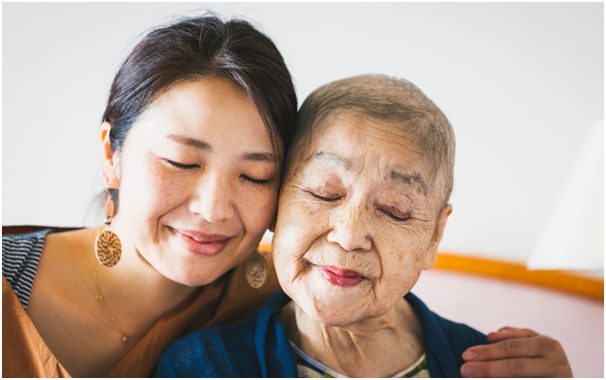Do’s and Don’ts of Dealing People with Dementia According To Dementia Nursing Homes in Singapore

Caring for a dementia patient is difficult and emotionally challenging, especially for family members and caregivers who are not quite conversant with the intricacies of the condition. Dementia will affect not only memory but also behaviour, language, and cognitive abilities, which demands a thought-provoking, patient approach. Expert dementia nursing homes in Singapore would guide people on how to relate to the dementia resident, by following what their comfort, safety, and dignity dictate. In this article, we discuss the dos and don’ts of how to deal with people with dementia, based on the best practices adopted by dementia care providers in Singapore.
Importance of Dementia Care
Dementia is a degenerating condition that creates a limitation of the person’s capability to be independent in his daily activities and communicate adequately. Loss of cognitive functions leads to frustration and emotional instability on the part of the patient. Therefore, the subject of dementia calls for care that is empathetic, tolerant, and respectful. Care of dementia in Singapore involves making it safe and giving care through a supportive elderly environment so that a person with dementia may live with dignity.
Caregivers (be they from professional dementia nursing homes in Singapore or family members at home) must know the dos and don’ts of how to handle those afflicted by this condition.
DO: Practise Patience and Empathy
People suffering from dementia might repeat the same information, forget basic facts and get easily irritated. Such actions are not an expression of will but a psychological defect of the disease.
Active listening and assurance can make a person with dementia feel safe and heard. At times when she seems confused and agitated, calm her down with gentle speech, light touch, or a soothing environment. A caregiver of people with dementia has to work within an atmosphere that is reassuring and stable since these patients are highly responsive to alterations in their surroundings.
DON’T: Correct or Argue
While it would be tempting to correct someone with dementia when he is confused or saying something that is not true, the person should never argue or insist that the statement is wrong. Indeed, evidence has shown that correcting a person with dementia can heighten their frustration and agitation.
For example, if a patient thinks that they are somewhere else, or sometimes at a different time, instead of arguing with them try to talk to them according to their way of thinking. This is called “validation therapy,” and is widely applied when elderly dementia care is taken in Singapore: dealing with the caregivers is one method of reducing stress levels and especially offering some emotional help.
Arguing with someone who has dementia exacerbates their confusion and distress, making it even more difficult to try to create an environment that feels safe and calm. The goals of caregivers should switch from correction to comfort by providing people with the emotional reassurance they need for the moment.
DO: Maintain a Structured Routine
One of the best ways to make a person with dementia feel safe is to have a predictable, structured routine. As the disease advances, patients forget where they are and cannot recall simple information about their lives, resulting in otherwise mundane daily activities and people interactions becoming intimidating. The more predictable a routine is, the less confusion it causes, because it feels familiar, and provides a sense of control.
In such care settings as the dementia nursing home in Singapore, caregivers have to maintain structured routines for meals, bathing and time for recreational activities. Such comfort to individuals with dementia allows them to know what to expect each day. Families caring from home can follow a similar routine, reducing anxiety and creating a more peaceful environment.
Other excellent things one can have in the daily schedule are regular physical exercise and social interaction. These can bring improvements in mood and mental well-being. Even simple exercises, such as walking or light stretching can be combined with engaging conversations or social activities, bringing satisfaction and a connection.
DON’T: Overstimulate or Rush
People with dementia easily become annoyed if exposed to too much noise, crowded environments, or simultaneous events. Overstimulation may cause anxiety and frustration, ending up in some agitation or aggression. Calmness and quietness are also crucial during moments when people are finished with their daily tasks (dressing, eating, grooming).
Spend time with the person with dementia and avoid rushing activities. Using simple language and breaking tasks into smaller steps may also help! Instead of saying, “Let’s get dressed,” you may instruct, “Let’s put on your shirt now.”
Caregivers in dementia care in Singapore take a step-by-step approach to daily routines, making people feel valued and supported even when they need more time to finish things.
DO: Reminiscence Therapy
When caring for elderly dementia in Singapore, the process of reminiscence therapy is an effective means of discussing memories. Many persons affected with dementia remember long-term better than short-term; thus, they can easily get into conversing about their past. As long as these conversations are related to their favourite memories, hobbies, or family events, they can bring joy and a sense of fulfilment.
Caregivers stimulate memories and foster meaningful conversations with the person by using photo albums, music, or familiar objects. This therapy enhances cognitive function and the emotional bond between the caregiver and the individual.
Need expert dementia care services? Then get in touch with Orange Valley today and learn about our specially designed and implemented dementia care programs and how we can provide compassionate support for your loved ones!






